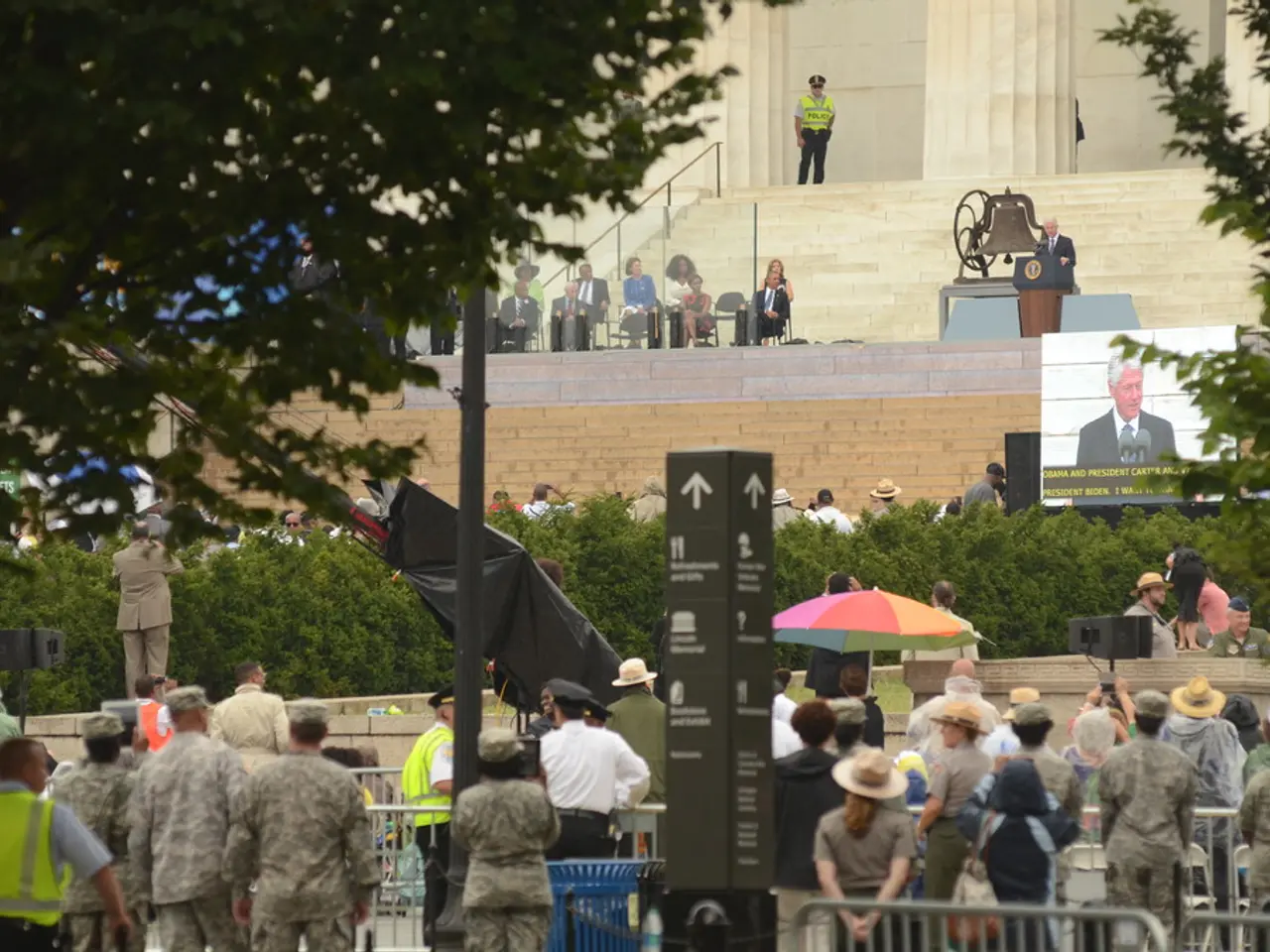Chaos in the Night: Israel Strikes Back at Iranian Targets, Retaliation Ensues
Military research facility in Israel under attack
Step back and buckle up, as we delve into the latest developments in the Israeli-Iranian conflict. In a bold move, Israel has launched an unprecedented series of airstrikes deep inside Iran, targeting key military installations and nuclear facilities.
Over 60 Israeli combat aircraft, according to Israeli reports, struck military facilities producing rockets and a research institute of Iran's "nuclear weapons project," the army stated. Several industrial facilities for producing rockets around the Tehran region were hit, serving as a central industrial center for the Iranian Ministry of Defense. Additionally, a facility essential for producing a critical component for Iran's nuclear weapons program was targeted.
In response to these attacks, air-raid sirens blared throughout southern Israel, signaling the raining of rockets from Iran. The Israeli army confirmed the detections of rockets launched from Iran towards the State of Israel. The military is currently working to intercept these projectiles.
Iran's escalating aggression towards Israel has been ongoing for nearly a week, with the Iranian regime launching rockets and drones to strike at their neighboring nation. These attacks followed a large Israeli air assault on Iranian military targets last Friday.
While Israel aims to prevent Iran from developing nuclear weapons and diminish its capability to threaten Israel and its interests, Iran has adamantly denied any intention to build nuclear weapons. Instead, they insist on the right to use nuclear energy for peaceful purposes. The tension between the two nations continues to simmer, with warnings of further escalation and concerns over the future of diplomatic efforts concerning Iran's nuclear program.
Politics & International Implications
Questions surround potential U.S. intervention in the conflict, with President Trump suggesting he may make a decision on military intervention within the coming fortnight. Regional leaders, including Turkish President Erdogan, have called for an urgent de-escalation to prevent a wider regional conflict, while Iranian Foreign Minister Abbas Araghchi warned of the dangers of U.S. involvement, citing the risk of intensified conflict.
As the situation unfolds, it is crucial to monitor developments closely and understand their potential global repercussions. Stay informed and stay safe. Our thoughts and prayers go out to those affected by the ongoing conflict.
Sources: ntv.de, as/dpa/AFP
IsraelIsrael-Iran ConflictIranian Nuclear Program
Enrichment Data:
- Israel's recent airstrikes have resulted in over 400 Iranian deaths and more than 3,000 injuries (as per Iranian reports).
- Among the high-profile casualties is Saeed Izadi, a senior commander of the Quds Force's Palestinian Corps, and Amin Pour Joudaki, commander of the IRGC Aerospace Force 2nd Drone Regiment.
- The Israeli strikes have primarily targeted Iranian air defenses, missile forces, and nuclear sites, aiming to degrade Iran's capability to threaten Israel and its interests.
- Iran has launched approximately 470 drones at Israel, with Israel claiming to have intercepted 99% successfully. Despite this, at least one Iranian drone managed to strike a home in Beit Shean in northern Israel.
- Diplomatic efforts concerning Iran's nuclear program have been ongoing, with the U.S. engaging in back-channel communications but showing reluctance to intervene or request Israel to cease airstrikes, potentially narrowing the window for potential direct U.S. military action against Iran.
Community policy should address the potential impact of escalating war-and-conflicts, such as the ongoing Israeli-Iranian conflict, on employment within the affected regions. Employment policies may need to be revised to support those displaced by wars and conflicts, providing resources for training and job placements.
Politics and general-news outlets should provide comprehensive coverage of the details surrounding the conflict, including the actions taken by Israel, Iran, regional leaders, and global powers. This coverage can help the public make informed decisions about employment opportunities, travel advisories, and support for diplomatic solutions.
As the situation unfolds, crime-and-justice systems in the affected regions must prioritize the prosecution of war-related crimes, such as acts of terrorism, human rights violations, and accidents resulting from military actions. Ensuring accountability for these crimes is essential for promoting peace and stability in the region.






